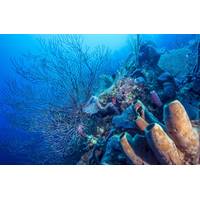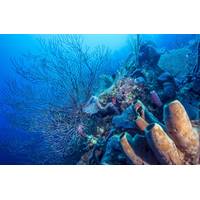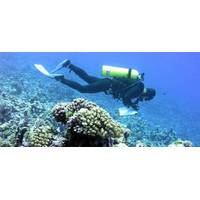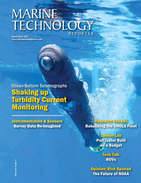
The Biggest Conservation Commitment in the World
Diversity.The framework includes 23 targets aimed at reversing habitat and species loss. Target 3, known as “30x30”, calls for the effective protection and management of 30% of the world’s terrestrial, inland water and coastal and marine areas by the year 2030.Put simply, says the Nature Conservancy, 30x30 is the biggest conservation commitment the world has ever seen.Only about 17% of land and 8% of marine areas are currently under some form of protection.A new initiative in support of the 30x30 target was covered this week in Marine Technology Reporter news. It involves helping communities

US Awards $6.7 Million for Sea Level Rise and Coastal Resilience Research
planning in the Gulf of Mexico coast.(IRA-funded) University of California, Irvine and University of Miami received nearly $500,000 to evaluate how nature-based solutions can empower more equitable flood risk management in Los Angeles County, California.(IRA-funded) George Mason University, The Nature Conservancy, Resources for the Future and Maryland Department of Natural Resources received nearly $500,000 to evaluate flood mitigation designs under future climate scenarios to inform restoration efforts in the Chesapeake Bay region.University of Texas at Arlington and University of Arkansas received

Wanted: A Sea-change in Climate Finance for Oceans
helping local women bring to market honey produced from bees that feed on the nectar of mangrove flowers.“Empower people” is one of five principles of the High-Quality Blue Carbon Principles and Guidance, which was launched at COP27. Developed by ORRAA, Conservation International, The Nature Conservancy, technology company Salesforce, and others, the principles seek to provide a framework for those involved in blue carbon credits, including purchasers, investors, suppliers and project developers.Ted Janulis is founder of Investable Oceans, a U.S.-based investment hub that seeks to simplify

Vontobel and Candriam back Belize's barrier reef 'superbond' buyback
; holders publicly backed a plan that would see the serial defaulter commit to protecting its giant barrier reef.The government of Belize laid out a groundbreaking proposal last week offering to buy back the $526.5 million bond with help from U.S.-headquartered, non-profit organization The Nature Conservancy.A key part of the deal is that the government will fund a $23.4 million marine conservation trust that would help protect the world's second-largest barrier reef, damaged in the past by offshore oil drilling and overdevelopment.The buyback offer needs the approval of 75% of the bond'

Threatened Caribbean Coral Reefs Get a New Ally: Insurance
has led to their bleaching - in which ailing coral expel the colorful algae living on them - which increases the likelihood the coral will die.“The reefs are in a really bad state,” said Fernando Secaira, the climate risk and resilience lead for Mexico at the environmental charity The Nature Conservancy (TNC).“We’ve lost 80% of the coral here in the Mexican Caribbean.”Though healthy reefs can recover from hurricanes, climate change has made that harder, scientists say. Quick payouts to help remove debris after storms and stick broken corals back together can help, reef experts

Hacking 4 Environment: Oceans - Creating Entrepreneurs from Scientists and Students
.The classes use Steve Blank’s experiential Lean LaunchPad curriculum. In 10 weeks, students work with sponsors and mentors to test their solutions for specific, real-world problems. In the case of Hacking for the Environment: Oceans and Hacking4Oceans, mentors and sponsors included the Nature Conservancy, the Oceanic Society, and NOAA Fisheries; policy experts from Scripps Institution of Oceanography as well as representatives from the innovation company BMNT, synthetic aperture radar company Capella Space, Boeing and NASA. For the duration of the “Hacking for” courses, students

Caribbean Set to Ride the 'Blue Economy' Wave
of these resources," Roger McLeod, CDB economist and report co-author, told the conference.Private investors would be willing to put money into well-structured deals, but the region needs to create a unified policy to drive the sector and make it easier for people to invest, said speakers.The Nature Conservancy, a U.S.-based group, proposed that Caribbean nations negotiate debt-for-nature deals, as it has done with the Seychelles.The East African island nation designated a third of its marine area as "protected" in return for The Nature Conservancy agreeing to buy up nearly $22 million of

NOAA Awards $9.3 Mln for Coral Reef Conservation
U.S. Caribbean to aid management strategies in the face of a changing climate, and the development of strategies to support marine protected area management and sustainable fisheries. The awards also build upon long-term partnerships with the National Fish and Wildlife Foundation and The Nature Conservancy to fund priority coral conservation projects. Nearly half of the funds awarded this year directly support coral reef conservation projects led by state and territorial resource management agencies. Other conservation projects are led by non-governmental organizations, community groups
Damanaki to Lead Nature Conservancy's Global Oceans Program
Maria Damanaki, former European Union Commissioner for Maritime Affairs and Fisheries, will join the Nature Conservancy (TNC) as Global Managing Director for Oceans. With over 30 years of public service in Europe, Damanaki most recently served as EU Commissioner for Maritime Affairs and Fisheries. Under her leadership, the Commission was able to bring fish populations back to healthier levels – from as few as five sustainable stocks in 2010 to up to 27 today – which could lead to 30 percent more jobs and EUR 1.8 billion in additional revenue by 2020. She also introduced and


 February 2025
February 2025





